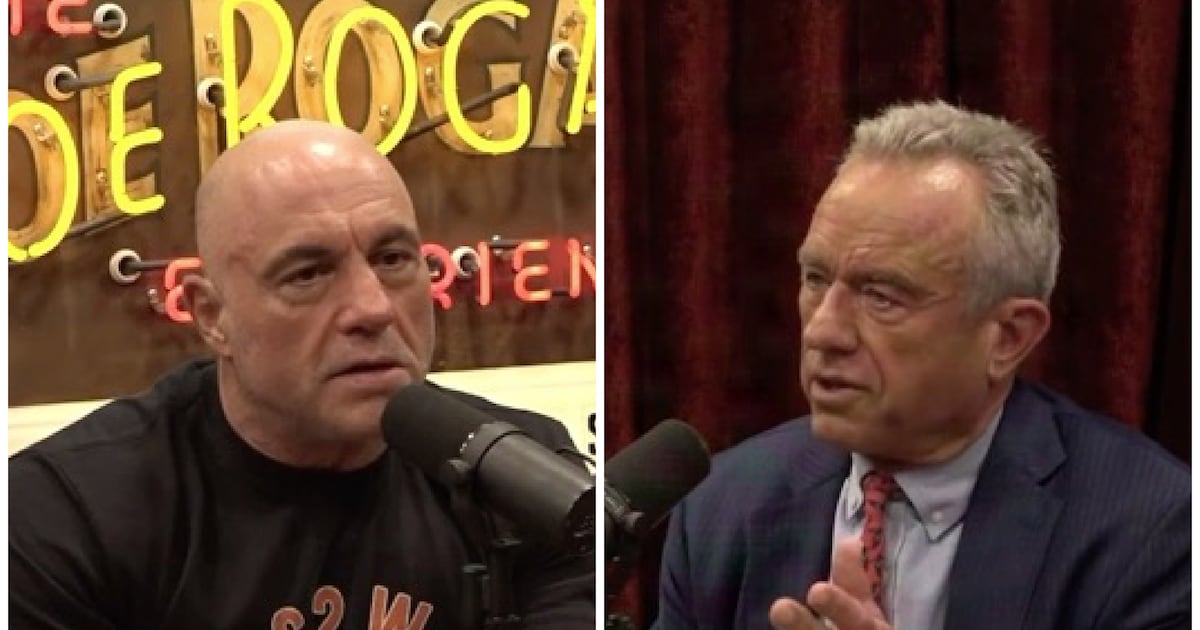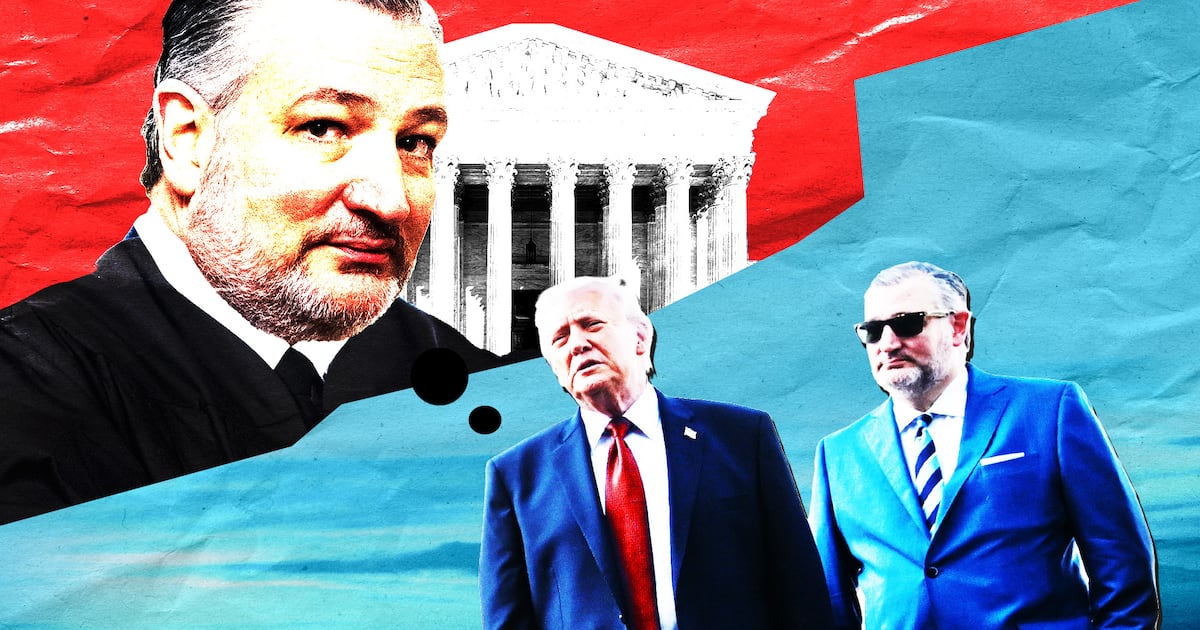Less than six months before he became the New York Times’ go-to reporter on the coronavirus pandemic, Donald McNeil Jr. was under intense scrutiny from the paper’s top brass over accusations that he made wildly offensive and racist comments while leading a Times student trip.
Every summer over the past several years, the Times has selected some of its top reporters to serve as subject guides for high-school students on trips to various locations around the world, operated in some instances by Vermont-based company Putney Student Travel. The goal, according to the paper, is to give travelers a foreign vacation with educational value.
In 2019, one of those experts was McNeil, a high-profile health and science reporter who joined the paper in 1976. He accompanied a student group on a Times “Student Journey” to Peru that focused on community-based health care in the region.
After the excursion ended, according to multiple parents of students on the trip who spoke with The Daily Beast along with documents shared with the Times and reviewed by the Beast, many participants relayed a series of troubling accusations to the paper: McNeil repeatedly made racist and sexist remarks throughout the trip including, according to two complaints, using the “n-word.”
A photo from the trip showed that at least 26 students participated. Of that group, at least six students or their parents told the tour company that partnered with the Times that McNeil used racially insensitive or outright racist language while accompanying the participants on the trip, which according to the Times website typically costs nearly $5,500. Two students specifically alleged that the science reporter used the “n-word” and suggested he did not believe in the concept of white privilege; three other participants alleged that McNeil made racist comments and used stereotypes about Black teenagers.
“I expect immediate action on the actions taken by Donald, I am deeply disappointed about the New York Times because of the comments he made during our trip. I think firing him would even be appropriate,” one participant wrote.
“Not only did Donald say various racist comments on numerous occasions, but he was also disrespectful to many students during mealtimes and in other settings,” another wrote in their review.
“I would change the journalist. He was a racist,” a third person wrote. “He used the ‘N’ word, said horrible things about black teenagers, and said white supremacy doesn’t exist.”
“He wasn’t respectful during some of the traditional ceremonies we attended with indigenous healers/shamans,” yet another wrote. “He made students in the program feel uncomfortable with his remarks. I was really disappointed after hearing great things about his work.”
A Times spokesperson told The Daily Beast on Thursday, “In 2019, Donald McNeil, Jr. participated in a Student Journeys as an expert. We subsequently became aware of complaints by some of the students on the trip concerning certain statements Donald had made during the trip. We conducted a thorough investigation and disciplined Donald for statements and language that had been inappropriate and inconsistent with our values. We found he had used bad judgment by repeating a racist slur in the context of a conversation about racist language. In addition, we apologized to the students who had participated in the trip.”
Times executive editor Dean Baquet addressed the controversy in an email to the newsroom Thursday night, saying that when he first heard about McNeil’s remarks, he was “outraged” and expected to fire him.
“I authorized an investigation and concluded his remarks were offensive and that he showed extremely poor judgment, but it did not appear to me that that his intentions were hateful or malicious,” he wrote.
Baquet went on to acknowledge criticism that the Times has been “too tolerant in disciplining high-profile journalists” and said he welcomed having that conversation. “Fair treatment has to be the foundation of the diverse and equitable newsroom we are building,” he wrote.
Following the reviews from participants, Times managers were immediately concerned, alerting the paper’s public-relations shop and its publisher, A.G. Sulzberger, to the alarming accusations.
“It’s highly likely his comments will become public at some point,” Danielle Rhoades Ha, a vice president of communications for the Times, warned colleagues in an email exchange reviewed by The Daily Beast.
“This is outrageous, in my view,” former corporate comms director Linda Zebian said. “I do think his manager needs to be made aware as a first step. Depending on their response, we can prepare a statement on any action that is being put into place.”
Multiple people familiar with the situation told The Daily Beast that an internal investigation was conducted about the claims and that the top science reporter was reprimanded. The paper also reached out to some parties who complained to apologize for McNeil’s behavior and to assure the students and parents that action had been taken internally against him.
Jeff Shumlin, director at Putney Student Travel, did not deny to The Daily Beast that his company had received complaints from parents about McNeil. “The New York Times shares some of its writers and experts with our programs for a short period of time, but that is their area of responsibility so I would refer you to them for further comment,” he said.
McNeil’s racist remarks have come to light during a period of controversy for the paper. Its award-winning podcast Caliphate has now been debunked; questions about its Pulitzer finalist host, star reporter Rukmini Callimachi, and her body of work for the paper remain unanswered. Last week, the Times came under intense criticism for firing a contract-based editor for tweeting that she had “chills” on Joe Biden’s inauguration day.
A longtime reporter at the Times, McNeil has won numerous awards for his hard-hitting and incisive reporting on infectious diseases, including his coverage of the Zika and Ebola outbreaks, along with the AIDS crisis and has served as a foreign correspondent reporting from Africa and Europe.
Since the beginning of the coronavirus pandemic, McNeil has emerged as one of the paper’s breakout stars and one of the country’s most prominent journalistic voices on the pandemic. While many Americans were still seemingly unconcerned about the virus in early 2020, McNeil’s reporting and a key appearance on the popular Times podcast The Daily emphasized its severity and potential to become a deadly global pandemic. Earlier this week, the Times published a candid sit down with Dr. Anthony Fauci, director of the National Institute of Allergy and Infectious Diseases, who opened up to McNeil about his difficult relationship with former President Donald Trump.
Still, over the course of his tenure at the esteemed newspaper, he’s occasionally run afoul of management. In 2012, he sent a blistering email to friends mocking and criticizing the Times’ then-publisher Arthur Sulzberger for his seeming absence amid tense guild contract negotiations.
Nevertheless, the paper has been eager to highlight McNeil’s work. According to a person familiar with the matter, his COVID-19 coverage is among the New York Times’ submissions for this year's Pulitzer Prize for public-service journalism.









